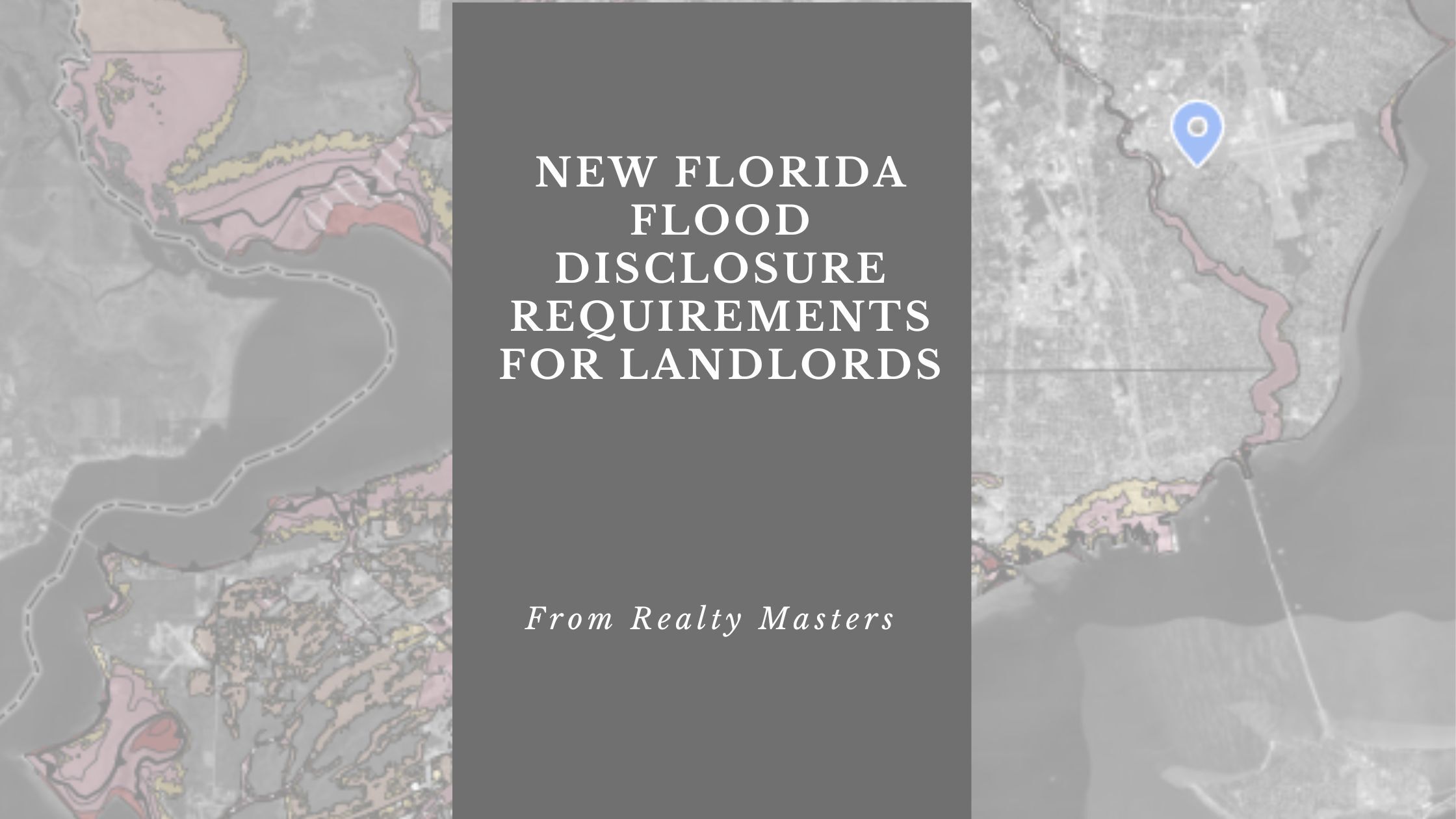Florida has recently expanded its flood disclosure laws—this time, the changes go beyond real estate sales. Starting October 1, 2025, residential leases in the state will also require a flood disclosure form to be provided before signing.
This new requirement means renters will have more upfront information about a property’s flood risk, while landlords must follow additional steps to stay in compliance. Here’s what both Florida landlords and renters should know.
Flood disclosures became a requirement in residential real estate last year. Beginning October 1, 2024, sellers of residential properties in Florida have been required to give buyers a Flood Disclosure Form before entering a purchase contract. This form explains that standard homeowner’s insurance does not cover flood damage and asks sellers to disclose prior flood claims, disaster assistance received, and any known flood history. Now, beginning October 1, 2025, these same requirements will apply to landlords for most residential leases (typically one year or longer). The form must be given to tenants before the lease is signed or renewed.
What the Lease Flood Disclosure Includes
While the exact language for rental agreements may vary, the new disclosure is expected to mirror the sales version and will typically include:
- A clear notice that standard renter’s insurance does not cover flood damage, and separate flood insurance may be needed.
- Any known flood history, including prior flooding events or flood-related insurance claims.
- Information on disaster assistance, including whether the property has received FEMA or other federal flood-related aid.
Why This Matters for Pensacola Landlords and Renters
For renters, the disclosure helps make informed decisions about insurance coverage and personal safety. If the required disclosure isn’t provided and major flooding damages personal property, Florida law allows tenants to terminate the lease without penalty and receive a refund of prepaid rent.
For landlords, this is more than just paperwork—it’s a legal obligation. Failure to provide the required disclosure could result in:
- Lease termination by the tenant
- Loss of prepaid rent
- Unexpected vacancies and lost income
In a coastal city like Pensacola, where flood risk is a real concern, this law reinforces the importance of transparent communication between landlords, tenants, and Pensacola property management companies.
Flood Risk Management for Florida Occupants
Regardless of what’s disclosed on a form, every renter and buyer should research a property’s flood risk before committing. Here’s how:
- Check FEMA’s Flood Map Service Center or your local county property appraiser’s GIS maps for flood zone details.
- Look for proximity to creeks, lakes, rivers, wetlands, marshes, or retention ponds—all potential flood hazards.
- Remember: Heavy rain events and hurricanes can cause flooding outside designated flood zones.
- Always consider flood insurance, even if the property has no known history of flooding.
A property owner’s lack of personal flooding experience doesn’t guarantee a risk-free home—development changes, drainage alterations, and extreme weather can all increase flood vulnerability over time.
With Florida’s new flood disclosure requirements for leases taking effect October 1, 2025, landlords must prepare now. Incorporating the correct disclosure form into every lease and renewal is essential to avoid liability.
One of the most common DIY landlord mistakes we see—especially among new landlords—is not having the proper paperwork and legally compliant leases in place. This isn’t a small oversight; it’s a major risk that can lead to costly disputes, legal trouble, and financial loss. Partnering with a professional Pensacola property management company ensures your leases are compliant, your documentation is thorough, and your risk is minimized. If you own rental property in Pensacola and want to stay ahead of these legal changes, our team at Realty Masters of Florida can help you protect your investment and stay compliant with Florida Landlord Tenant Law and other legal requirements.
Just FYI, this article is for informational purposes only and is not legal advice. For specific guidance, consult an attorney familiar with Florida real estate and landlord-tenant law.


